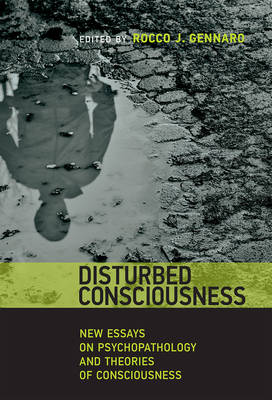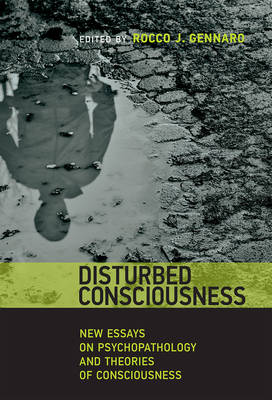
En raison d'une grêve chez bpost, votre commande pourrait être retardée. Vous avez besoin d’un livre rapidement ? Nos magasins vous accueillent à bras ouverts !
- Retrait gratuit dans votre magasin Club
- 7.000.000 titres dans notre catalogue
- Payer en toute sécurité
- Toujours un magasin près de chez vous
En raison de la grêve chez bpost, votre commande pourrait être retardée. Vous avez besoin d’un livre rapidement ? Nos magasins vous accueillent à bras ouverts !
- Retrait gratuit dans votre magasin Club
- 7.000.0000 titres dans notre catalogue
- Payer en toute sécurité
- Toujours un magasin près de chez vous
Disturbed Consciousness
New Essays on Psychopathology and Theories of Consciousness
84,95 €
+ 169 points
Description
Essays defend, discuss, and critique specific theories of consciousness with respect to various psychopathologies. In Disturbed Consciousness, philosophers and other scholars examine various psychopathologies in light of specific philosophical theories of consciousness. The contributing authors--some of them discussing or defending their own theoretical work--consider not only how a theory of consciousness can account for a specific psychopathological condition but also how the characteristics of a psychopathology might challenge such a theory. Thus one essay defends the higher-order thought (HOT) theory of consciousness against the charge that it cannot account for somatoparaphrenia (a delusion in which one denies ownership of a limb). Another essay argues that various attempts to explain away such anomalies within subjective theories of consciousness fail. Other essays consider such topics as the application of a model of unified consciousness to cases of brain bisection and dissociative identity disorder; prefrontal and parietal underconnectivity in autism and other psychopathologies; self-deception and the self-model theory of subjectivity; schizophrenia and the vehicle theory of consciousness; and a shift in emphasis away from an internal (or brainbound) approach to psychopathology to an interactive one. Each essay offers a distinctive perspective from the intersection of philosophy, consciousness research, and psychiatry. Contributors
Alexandre Billon, Andrew Brook, Paula Droege, Rocco J. Gennaro, Philip Gerrans, William Hirstein, Jakob Hohwy, Uriah Kriegel, Timothy Lane, Thomas Metzinger, Erik Myin, Inez Myin-Germeys, Myrto Mylopoulos, Gerard O'Brien, Jon Opie, J. Kevin O'Regan, Iuliia Pliushch, Robert Van Gulick
Alexandre Billon, Andrew Brook, Paula Droege, Rocco J. Gennaro, Philip Gerrans, William Hirstein, Jakob Hohwy, Uriah Kriegel, Timothy Lane, Thomas Metzinger, Erik Myin, Inez Myin-Germeys, Myrto Mylopoulos, Gerard O'Brien, Jon Opie, J. Kevin O'Regan, Iuliia Pliushch, Robert Van Gulick
Spécifications
Parties prenantes
- Editeur:
Contenu
- Nombre de pages :
- 384
- Langue:
- Anglais
- Collection :
Caractéristiques
- EAN:
- 9780262552400
- Date de parution :
- 28-05-24
- Format:
- Livre broché
- Format numérique:
- Trade paperback (VS)
- Dimensions :
- 152 mm x 229 mm
- Poids :
- 562 g

Les avis
Nous publions uniquement les avis qui respectent les conditions requises. Consultez nos conditions pour les avis.





